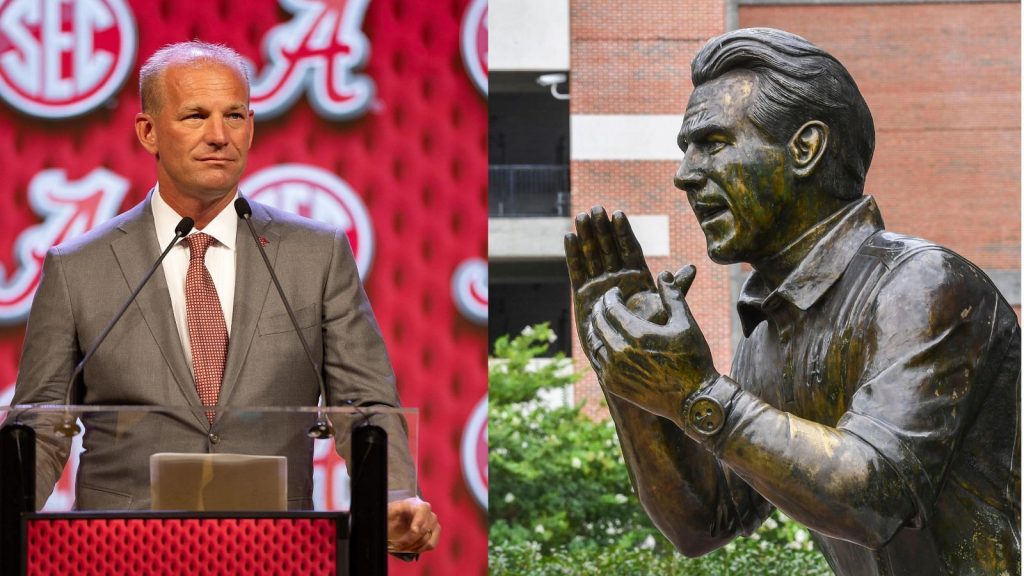The recent decision by the College Football Playoff (CFP) selection committee to include SMU while excluding Alabama has sparked a heated debate among college football fans and analysts alike. The ink had barely dried on the first-ever 12-team bracket when the uproar began: How could a powerhouse like Alabama be left out in favor of a team that has been largely irrelevant in the college football landscape for decades?
The controversy surrounding the CFP selection
To say that the choice of SMU over Alabama was controversial would be an understatement. Alabama, a perennial championship contender, has a storied history filled with accolades and national titles. Meanwhile, SMU, despite a decent season, lacks the same pedigree and has not been a significant player on the national stage in years.
Optics aside, leaving the Tide out while selecting the Mustangs was a decision that raised eyebrows. Here are three compelling reasons why this choice by the CFP selection committee was a major error.
Reason #1: The SEC’s dominance should have been prioritized
When discussing playoff berths, the college football landscape is predominantly ruled by two conferences: the Big Ten and the SEC. The Big Ten sent four teams to the Playoff, with only the selection of 11-1 Indiana causing any real controversy. Conversely, the SEC managed to send three teams, showcasing its strength and depth.
In this context, it’s perplexing that the committee opted to award a second berth to the ACC, which is generally considered weaker than the SEC. Alabama’s conference wins included formidable opponents like Georgia, LSU, South Carolina, and Missouri. In contrast, SMU’s best conference victory was against an unranked 8-4 Louisville team. This stark contrast in quality raises the question: how could the committee justify this decision?
Reason #2: SMU’s lack of big-game experience
The CFP isn’t just about rewarding teams for a good season; it’s about selecting those that can compete at the highest level. Alabama has a long history of playing in high-stakes games, showcasing its ability to perform under pressure. This season alone, the Tide faced off against national powerhouses such as Georgia, LSU, and Tennessee, all of which are programs accustomed to the national spotlight.
On the other hand, SMU’s experience is limited. The Mustangs faced only two ranked teams all season, suffering a loss to Clemson and narrowly defeating a Pittsburgh team that finished with a 7-5 record. The reality is that SMU’s playoff game against Penn State would mark the biggest game for the Mustangs in 40 years, while it would be just another day at the office for Alabama. The lack of experience in high-pressure situations could severely hinder SMU’s performance in the playoff.
Reason #3: Impact on SEC scheduling
One of the overarching goals of the 12-team playoff format is to enhance the regular season and allow teams to take more risks without fearing a detrimental loss. This shift could encourage teams to schedule tougher opponents, ultimately strengthening the competition.
However, the CFP’s decision to include SMU may have inadvertently jeopardized the future of the SEC’s scheduling. The conference has long debated transitioning to a nine-game regular-season league schedule, which would require teams to face another conference opponent instead of a weaker non-conference foe. If Alabama can finish with a respectable 9-3 record in an eight-game SEC slate and still miss the playoff, it raises concerns about whether teams will be willing to take on additional SEC opponents.
No one expected the CFP committee to consider the broader implications of their decision on SEC scheduling. However, the ripple effect of selecting SMU over Alabama could have long-term consequences for the conference’s competitive landscape.
The implications of the selection
As the dust settles on this controversial decision, the college football community is left to ponder the implications of the CFP selection committee’s choices. Did they prioritize the wrong criteria? Were they swayed by narratives rather than performance?
The decision to include SMU over Alabama not only raises questions about the integrity of the selection process but also about the future of college football’s playoff system. Will this decision set a precedent for future selections? How will it affect the dynamics of the SEC and its scheduling practices?
What do you think of the selection of SMU over Alabama? Share your thoughts in the comments section below. The debate is far from over, and as college football enthusiasts, we are eager to hear your take on this pivotal moment in the sport’s history.





























